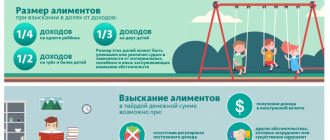Parents have an incredible amount of responsibilities. The child must be clothed, fed, provided with a good education and let into adulthood prepared. That is why parents are rewarded for performing their functions, and this is enshrined at the legislative level. The reward is a number of guarantees and benefits that provide for the provision of alimony to needy elderly people by their own children. How exactly to implement this provision will be discussed in our material.
What does the law say?
What to do if a father or mother filed a lawsuit against their children, wanting to recover child support? The law says that there is only one option here: to implement this same assistance in a high-quality and timely manner. Exceptions are allowed only for incapacitated, disabled and minor children. For other persons, Article 87 of the Russian Family Code applies, which states that sons and daughters are obliged to provide for their needy parents if they do not have sufficient means for an optimal existence.
It should be noted that in Russia it is not particularly common to sue or argue with your children or parents, especially when it comes to financial issues. Many citizens can leave their parents, leaving them without care and livelihood. Lonely old people are forced to survive on small pensions, which do not always reach the regional subsistence level. However, children can be sued by third parties who are either related to the single elderly parents. This way they will remind citizens of their legal responsibilities.
Naturally, no one forces Russians to leave their place of residence and constantly be close to their ancestors. It is enough just to pay them financial assistance in a timely manner. This is especially true for people whose parents need medication due to a serious illness, and sometimes even food. Also, for the amount of alimony, you can hire a nurse who would agree to regularly care for the elderly.
So, in order to assign alimony relations, the citizen’s parents must be recognized as disabled. Retirement is not a reason to be recognized as such a citizen. Only the manifestation of a serious illness, which requires additional costs, is acceptable. As soon as the illness disappears and the citizen is again recognized as able to work, alimony relations are eliminated.
Minor child
An extremely interesting question is whether a child can apply for child support. Minors need a representative in court. This could be a guardian or a parent. Minor parents in modern society are not a surprise, but they fulfill their duties as real parents only from the age of 16, before which a guardian is also required.
Therefore, if minor citizens file for alimony in court, then only through the responsible person. But the minor will be named in the lawsuit.
Who pays child support?
Not only natural sons and daughters, but also pupils can be involved in alimony obligations. These are persons who have been under the guardianship of a citizen for some time, who currently needs help and financial support. This is evidenced by Article 96 of the RF IC.
According to norm 97 of the RF IC, the obligation to support parents also falls on stepdaughters and stepsons, but provided that they have been in care for at least 5 years. A prerequisite for those in need is confirmation from the child’s words that they previously properly fulfilled their parental responsibilities. Stepmothers and stepfathers must prove that they do not have their own children or close relatives obligated to provide assistance by law.
In what cases are parents able to demand that they receive child support payments? According to the norms of the RF IC, the main factor in this case is disability. This is recognized as a person who, due to his state of health, does not have the opportunity to carry out his work activities efficiently and regularly, and also needs help from outsiders in everyday life, or medications to maintain an optimal state of life and health. This, of course, is a formal definition that is enshrined in law. In practice, everything is completely different.
Expert opinion
Marina Bespalaya
In 2011 she graduated from the University of Internal Affairs with a degree in jurisprudence. In 2013, master's degree course, specialty "law". In 2010-2011, a course at Portland State University (USA) at the Faculty of Criminal Law and Criminology. Since 2011 - practicing lawyer.
According to the law, all parents can apply for child support, except those who were previously deprived of parental rights in relation to a particular child. This is true, but cancellation of payments is allowed if the child proves that the parent did not live with him, refused his obligations, and also evaded providing assistance to the child.
In what cases does the state pay alimony?
If the second spouse behaves incorrectly and does not provide the alimony due to the child, then the state can provide for the child. Don’t panic if you don’t have enough money to fully support your child. It is necessary to apply for payments that will be provided by the state. When can you ask them:
- The second spouse does not have the funds or any property to pay money for the child;
- If a person is wanted, under arrest, in military service, i.e. it is not possible to contact him;
- The other parent is incapacitated;
- The amount of alimony is less than required.
This benefit will only be paid to minor children. Children over 18 years of age are not entitled to it.
Of the 100 Russian parents paying child support, 98 are fathers and two are mothers. The percentage of the latter is small, but there is a precedent and requires regulation at the legal level.
Family law protects the interests of the child as the most vulnerable member of society. It determines in what cases the father can take the children with him during a divorce.
Section V of the Family Code of the Russian Federation is entirely devoted to alimony relations among family members, answering the questions:
- In what case can a father apply for child support?
- Can a husband file alimony for his wife without ending the marriage?
- What document can oblige the payment of alimony?
The procedure for receiving alimony from the wife is also being considered. The possibility of reducing or increasing the amount of alimony is established. Civil and criminal laws provide for penalties if alimony is not paid maliciously.
- Most cases regarding alimony are extremely individual and consist of a very large number of factors.
- Understanding the legal framework is desirable, but it cannot guarantee a solution to your specific situation.
Therefore, you can check any information with our on-duty legal consultants 24/7 and free of charge.
You can contact them in the following ways:
1) in online chat or through the form below
2) Or call the 24-hour hotline by phone: Moscow: St. Petersburg: For other regions: – the call is free from anywhere in Russia.
Conditions for assigning alimony for older citizens
Now only those elderly citizens who have a confirmed disability group can apply for alimony. It is desirable that this be group 1 or 2. Disabled people of the third group - that is, diabetics, asthmatics and other citizens can also apply for alimony, but it will be more difficult for them to do so. Group 3 does not always limit a person’s ability to work. Although everything here depends on the type and characteristics of the workplace.
If an elderly parent’s pension is too small and the amount received cannot be used to buy insulin injections, supportive treatment measures or other medical goods or services, then the parents have the right to demand the necessary funds from their children. Again, such requirements are stipulated by law, and therefore are considered absolutely normal. Unfortunately, not all older citizens realize and understand this. For them, even a request, let alone a demand, is some kind of ugly and inconsistent act.
In what cases can a citizen not count on receiving financial assistance from his son or daughter? Everything is quite simple here:
If the pension or salary is higher than the subsistence level, then it will not be possible to establish alimony relations. But Article 89 of the RF IC obliges children to make a one-time alimony payment if parents need help in an emergency.
Let's say an elderly father has been seriously injured, which is why he urgently needs money for treatment. The first person who is obliged to contribute at least part of the finances is the child.
According to Article 100 of the RF IC, children and parents can enter into a special agreement called an “agreement on supporting parents in their declining years.” This is a document very similar to the one concluded between ex-spouses after a divorce. Then the child remains with the mother, and the father undertakes to help provide him with financial support. In the case of parental support agreements, everything works out in a similar way: all the necessary requirements are recorded on paper, after which they are certified by a notary office. After this, the application automatically acquires the status of a writ of execution - that is, it can be used as evidence in court.
Not all children, much less parents, agree to conclude such an agreement. It is difficult to imagine that a son or daughter would officially agree to help their ancestors. This is a rather peculiar picture, and therefore, if alimony relations begin to take effect, then in the most extreme case.
Can I file for child support against my son?
Alimony obligations of family members are prescribed in the Family Code of the Russian Federation. According to its provisions, not only children, but also parents have the right to receive financial support. And, if an adult child for some reason evades his obligations, he can be officially involved in their fulfillment.
An agreement on the payment of alimony can be drawn up by a disabled father or mother and an adult child. It indicates the amount and procedure for transferring funds, possible exceptions, etc. The finished agreement in two copies is certified by a notary.
But, if this issue is very acute between generations, litigation cannot be avoided - the disabled parent will have to file for child support for his son or daughter, and the law will be completely on his side.
Distribution of alimony payments
Article 87 of the domestic Family Code states that it is permissible for parents and children to conclude an agreement on the appointment of monthly maintenance for parents from a certain period - for example, from a pension or from the onset of disability. If there is no such agreement, then parents can demand financial assistance only after they reach the age of total disability, which must be documented.
During the court hearing, the financial and family situation of all the plaintiff’s children is considered - regardless of whether a claim was filed against one child or several. The nature of the parents’ claims is taken into account, namely the size of their income, health status and total expenses. Thus, the legality of the requirements is determined. After all, if there is an already established disability pension, it will not be possible to oblige a student daughter to pay alimony from the scholarship, taking into account the amount of the agreed payment. But the court is quite capable of imposing an obligation in the form of alimony payments from wages that exceed the subsistence level. The cost of products that parents need (for example, medicines or medical services) must be taken into account.
Unlike alimony for children, where two forms of payments are acceptable - firm and shared, alimony for parents is assigned exclusively in firm form. It is calculated in advance and then regularly indexed. Also, alimony can be distributed among all capable children depending on their financial situation.
When the father and mother decide to divorce
Simultaneously with the application for divorce, the husband can file for alimony for his wife, deciding to take the children. A dispute between an ex-husband and wife about who their common minor children will live with is resolved in court with the participation of the guardianship and trusteeship authorities on the basis of Article 24 of the RF IC.
Expert opinion
Kuzmin Ivan Timofeevich
Legal consultant with 6 years of experience. Specializes in the field of civil law. Member of the Bar Association.
If the mother voluntarily refuses to continue living with the children or such a decision is made by the court, then the father can file for alimony in order to maintain the previous level of family support.
Required Documentation
Litigation of any nature is considered solely on the principles of impartiality and legality, and therefore requires the submission of documents and testimony. If a statement of claim is filed by parents against their children, then a special package of documents must be attached to it, which will include:
- ID card - original and its copy;
- documentation indicating the existence of family ties between children and their parents (for example, a birth certificate);
- a certificate of income (for example, from the Pension Fund about the amount of the disability pension);
- doctor's report on treatment;
- medical documentation on the health status of a citizen in need of financial support;
- receipts for purchased medicines.
For greater persuasiveness, you can invite the attending physician to the court to act as a witness. He will describe the nature of the health damage and tell you about the necessary treatment. To do this, you need to get a certificate from the pharmacy about the cost of medications that are needed for treatment on a regular basis.
The defendant, that is, the potential alimony payer, is obliged to provide the court with an identity card, a certificate of family and income. After examining the submitted documentation, the court will decide on the amount of alimony payments and the procedure for their distribution among the plaintiff’s capable children. After 10 days, the decision will enter into legal force.
Subjects of relations
There is a certain image in society that alimony is paid by a man who left the family for personal reasons. Judicial practice with alimony knows many different scenarios. For example, alimony is paid:
- Fathers;
- Mothers;
- Siblings of young children;
- Adult children;
- Grandmothers and grandfathers;
- Grandchildren.
The list is quite impressive; all adult family members can, by court decision, pay alimony to disabled or minor relatives. Just as parents take care of their children until they reach adulthood, children must provide for their parents in difficult situations.
Grandparents take care of their grandchildren in such a way when parents are not there or they cannot cope with supporting the children. If children are over 18 years old, then they will support their younger or older relatives only if they have money to provide for anyone else besides themselves.
An extremely common case is when it is the child’s mother (ex-wife) who applies for alimony from her ex-husband. Therefore, there are no obstacles to a woman asking for monetary payments from her former or current spouse through the court.
In a situation where a woman is raising alone a child who is under three years old, or if she is disabled 1-2 degrees, or a pensioner with low income, you can also demand alimony from children who are 18 or more. Next, we will talk about the case in which the mother pays child support.
Ideally, both parents should supervise the child. But if the family broke up and the children, by a court decision or by any desire (of the children, father, mother), were left to be supported by the father, then he has absolutely the same right and can file for alimony from the mother.
Expert opinion
Kuzmin Ivan Timofeevich
Legal consultant with 6 years of experience. Specializes in the field of civil law. Member of the Bar Association.
And the situation with disability is also duplicated. The father is disabled or an incapacitated pensioner - according to the law, he may be entitled to alimony. They will be assigned either to children or to able-bodied and wealthy grandchildren.
The following video will tell you about the trend of collecting alimony from mothers:
Collection of alimony
Based on the court decision, a court order will be generated, which will be handed over to the plaintiff. He, in turn, transfers the document to the bailiffs, whose responsibilities include compliance with legal requirements, namely, organizing the process of collecting alimony payments to the plaintiff.
Representatives of the FSSP (bailiffs) determine the place of work for children. The fixed form of payments can be calculated by the citizen’s employer and deducted directly from the salary. Accordingly, the bailiffs themselves will deal not directly with the defendant, but with his representative - that is, the employer.
If a citizen is not officially employed, but works under a civil contract, is engaged in business, performs the duties of an individual entrepreneur, or is completely unemployed, then he must determine the amount of payments and transfer them independently.
Child support withholding forms
If, during a divorce, the children remain with the father, and the mother lives separately, then the husband does not necessarily have to file for alimony for his wife. On the basis of a bilateral agreement provided for in Article 99 of the RF IC, alimony can be paid by the ex-wife voluntarily.
According to paragraph 1 of Article 100, such an agreement must be certified by a notary. The specified document acquires the force of a writ of execution on the basis of paragraph 3 of Article 100.
In a conflict situation, when a husband decides to file for alimony for his wife, and the court satisfies his claim, alimony is collected according to a writ of execution on the basis of Article 106 of the RF IC. The father can send the document to the mother's place of work.
Then the accounting department of the enterprise will transfer alimony to the child, which is obligated by Article 109 of the RF IC.
The father can file for child support even if the mother does not work. The court will decide in which cases it is advisable to seize her property, and in which - to order payment from the state budget as missing alimony for the full maintenance of the child.
Changes in payments
Here we come to the main topic of the article. What should you do if your mother or father sues for child support? Is it possible to avoid payment? It is indeed possible not to go through the legal procedure itself, but the obligation to provide for parents will still not go away. The provision can be of any nature - financial, in kind, individual, etc. It is only important that it covers the cost of living of a needy citizen. An elderly parent should calmly buy their own medicine, clothing, food, and pay for medical or sanatorium services.
Children do not have the right to refuse their obligations to provide for their parents.
However, it is possible to challenge the amount of alimony if the financial or family situation of older citizens has noticeably changed. Suppose the parents were able to provide themselves with a good passive income, while their son, a businessman, went bankrupt. He simply does not have the funds to pay alimony, and therefore he petitions to change the amount of alimony.
The same goes for the children themselves. Let’s assume that a brother graduated from a university and found a prestigious, well-paid job, and his daughter went on maternity leave. Naturally, she cannot pay more than her brother. Certain adjustments are made to the contract or court order.
The court, in accordance with Article 87 of the RF IC, is able to distribute shares according to the actual income of the plaintiffs. If the financial situation of the parties does not change, then the children do not have the opportunity to refuse child support obligations in relation to their parents. Otherwise, they will face sanctions for evading their obligations. Recently, the penalty has been reduced, and it amounts to 0.5% of the amount for each overdue day. This sanction is regulated by Article 115 of the RF IC.
Moreover, if children are persistent defaulters, then administrative liability may be brought against them. According to Article 17.14 of the Code of Administrative Offenses of the Russian Federation, if bailiffs determine that children are evading payment by concealing income or property, then they will be subject to fairly large fines.
Applicable right
Paying alimony is even more serious than it might seem. If the former spouse regularly pays the established amount in full, then everything is regulated within the framework of family law.
But to what right does alimony apply if there are violations in the timing and amount of payment? Such a case moves from the Family Code to the Criminal Code. In this situation, there is an article that is responsible for controlling malicious evasion of payment of funds due to children by law. You need to look for her at number 157.
Is it necessary to pay child support to a parent who has not previously paid it himself?
An interesting fact is that it is often unscrupulous parents who themselves did not pay child support who, in their old age, begin to demand financial assistance. It is quite simple to explain this phenomenon: there are many lazy and disorganized people in the world who do not change at all with age. However, Article 87 of the RF IC establishes the following:
The court has the right to refuse to pay alimony to parents if it is established that they themselves previously shied away from fulfilling their responsibilities until the child turned 18 years old.
There are several interesting features here. First, you need to pay attention to the word “right”. It turns out that the court is capable, but not obligated, to cover alimony obligations. It all depends, again, on the situation. For example, a parent tried to pay child support, but did so untimely and not in full. This was due to poor health and overwork at hazardous work. Having reached old age, he was left completely alone, and he had practically no finances. He needs medical attention. Will the court really refuse this citizen financial assistance? With a high degree of probability, he, on the contrary, will oblige the child to help his parent.
Now let's imagine a different situation. The father had a stable income, but did not provide for any of his five children after the divorce. He soon lost a considerable part of his money in gambling, and then fell completely ill. Despite the fact that this citizen receives a monthly pension equal to the subsistence minimum, he still demands the collection of alimony from his sons and daughters. It is obvious that the court will refuse this citizen to satisfy his demands.









